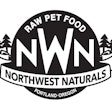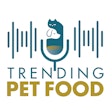
Scientists at the University of Göttingen, Germany compiled evidence that seeing claims about animal welfare issues, such as free-range, on pet food labels may incline pet owners to purchase those products. Eventually, this tendency could be harnessed to increase the value of byproducts from livestock reared according to animal welfare criteria, they suggested.
However, more specific research is needed, one of the University of Göttingen researchers, Louisa von Hardenberg, told Petfood Industry. Her team is working on that research now that they’ve completed a review of a previous survey.
Pet owners’ views on animal welfare
The journal Proceedings in System Dynamics and Innovation in Food Networks published that review of previous scientific data on consumer opinions about livestock husbandry practices. Hardenberg’s colleagues wrote the paper, “The Pet Food Industry: An Innovative Distribution Channel for Animal Welfare Meat?“. The original research involved a survey of 667 consumers living in Germany, and initially was intended to observe meat-shopping behavior for human consumption.
Since that survey had asked participants if they had pets, the University of Göttingen scientists could analyze the results to focus on correlations between animal welfare attitudes and pet food purchasing. They found a statistically significant correlation between pet ownership and support for animal welfare on farms.
Compared to non-pet owners, pet parents reported greater belief that there were insufficient requirements for animal welfare within intensive livestock production systems. Likewise, more pet owners agreed with the statement that farmers did not take good care of their livestock. Pet owners also wanted more education on livestock husbandry practices than non-pet owners.
Pet owners willingness to pay for animal welfare meat
Meeting criteria that pet owners identified as important for animal welfare, such as free-range chicken production, also tends to cost more, since it may involve more labor or land. Pet owners expressed a greater willingness to pay for meat raised according to those animal welfare criteria.
Among non-pet owners, 56.1 percent were unwilling to pay more than 10 percent extra for animal welfare meat. However, that percentage dropped to 42.9 percent for pet owners.
More research on animal welfare byproducts in pet food needed
Between dog and cat owners, no statistically significant difference was found in either animal welfare concerns or willingness to pay more.
Although the survey’s results suggest that pet owners would pay a premium for animal welfare meat, specific research on the relationship is lacking. In particular, the University of Göttingen researchers proposed that pet food use the byproducts of livestock raised using animal welfare practices. Since some pet food consumers have rejected byproducts, the interplay between pet owners aversion to byproducts and desire for livestock welfare would need to be evaluated, along with other factors.


















